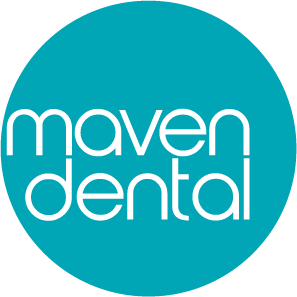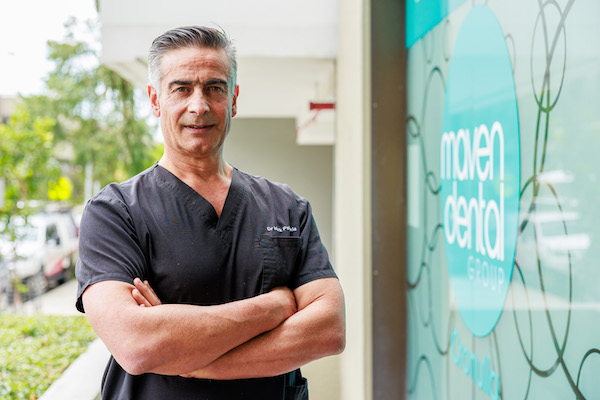Did you know this week (7-13 August) is Dental Health Week? This year, the annual oral health campaign from the Australian Dental Association examines the connection between oral health and the whole body – a concept relevant for children as much as adults.
In recognition of this, we sat down with our good friend Dr Mark Psillakis from Maven Dental Cronulla to gain some insight into kids’ dental health.
Dr Mark Psillakis is an experienced Associate Dentist at Maven Dental Cronulla. With a Bachelor of Dental Surgery (BDS) from Sydney University and decades of experience, Dr Mark is passionate about general dentistry. He most enjoys interacting with patients and learning about what’s important to them, to help them decide what is best for them at each and every stage of their lives.
Maven Dental Cronulla is a leading practice offering general dentistry such as check-ups and fillings, cosmetic dentistry such as whitening and Invisalign and of course, children’s dentistry including check and cleans, exams and mouthguards.
Here, Dr Mark answers questions raised by our trusted MOTS community of parents. If you have a question not covered below, consider contacting Maven Dental who are currently offering a Kids’ Check and Clean for only $99 (possibly less depending on your health fund).
“When should I start brushing my children’s teeth?”
A common question from parents! At Maven Dental Cronulla we encourage basic oral hygiene practices from birth, even before teeth first appear. This can be simply wiping the gums, palate, cheek and tongue following a feed in order to remove residue that can feed unwanted bacteria. Teeth then need to be brushed, or at least wiped over with a fine fibre face washer from the moment they appear in the mouth.
“When should I first take my children to visit the dentist?”
Your child’s first dental visit should be before their first birthday, certainly within six months of the eruption of their first tooth. This serves to build a level of familiarity and comfort with the dentist, the dental surgery environment and gives you the opportunity to learn what you should be doing for the oral health of your baby.
“My two year old son is refusing to brush his teeth. Is this bad?”
It is important to remove plaque from teeth daily to avoid future problems such as cavities and premature tooth loss. Although brushing is the most common way to remove plaque from teeth, if brushing is the issue, teeth can also be wiped over with a moistened face washer.
It is important however to try and establish why your son refuses to brush his teeth and then see if you can find a solution that deals with the particular issue he has.
“I am seriously struggling to brush my 14 month old’s teeth properly as he just chews the brush! Any tips?”
Don’t be overly concerned if you’re not brushing perfectly each and every day. The fact that your child allows you to place the brush in their mouth is a good start and the act of chewing the brush will have a cleansing effect at least on the biting surfaces of the teeth. Try wiping the inside and outside of the teeth with a moistened fine fibre face washer, just be sure to keep your finger clear of their bite!
“I just found out my eight month old has a lip tie. What should I do?”
Both upper and lower lips have a fibrous attachment in the middle that connects the lip to the jaw. This is known as the frenum or frenulum, and serves to stabilise the lips as the face grows.
On occasion, the frenum may be too short and/or attached higher up on the gums where the teeth are, and this may restrict the movement of the lip making it difficult for the baby to form a seal when breastfeeding. If your child is feeding and gaining weight as expected, there’s nothing to worry about. If, however, your child is struggling to attach and feed (which is uncommon with a lip tie, more so with a severe tongue tie), then the treatment is a frenectomy. This is when the frenum is severed, usually with a laser, to free the lip and gain the required mobility.
If your child is not having any such issues and the lip tie was just an incidental finding, it should simply be monitored by your dentist who can provide advice should any sort of intervention be needed as your child grows.
“My 21 month old’s teeth have clear tips. Should I see a normal dentist or a paediatrician?”
The outer shell of the teeth is made of enamel and this can be quite translucent. It is the middle layer of teeth, known as dentine, that is opaque. Dentine doesn’t extend all the way to the incisal edge of teeth, hence why you can see through the translucent enamel. This is nothing to be worried about.
If however, you are still concerned, it is always best to see your dentist who can determine whether specialist consultation and treatment is needed.
“Why does my child’s baby tooth need to have a filling given it’s going to fall out anyway?”
If decay in a baby tooth (like an adult tooth) reaches the nerve, it can lead to the development of an infection (abscess, swelling) which can be painful and affect overall health. It can also lead to premature loss of the tooth. Baby teeth need to fall out in a particular sequence to prevent other teeth from drifting into spaces left behind leading to crowding and other orthodontic problems.
“Should all baby teeth have fallen out before seeing an orthodontist?”
Absolutely not. Problems with your child’s bite (occlusion) are usually a combination of skeletal issues (discrepancies of size, shape, position of jaws) and dental issues (size, shape, position/orientation of the teeth). Skeletal issues are best identified from around the age of seven when decisions on the timing of any intervention that may be needed can be made.
For more information, check out Maven Dental’s Facebook page, or get in touch to make an appointment on 02 9527 0544.

